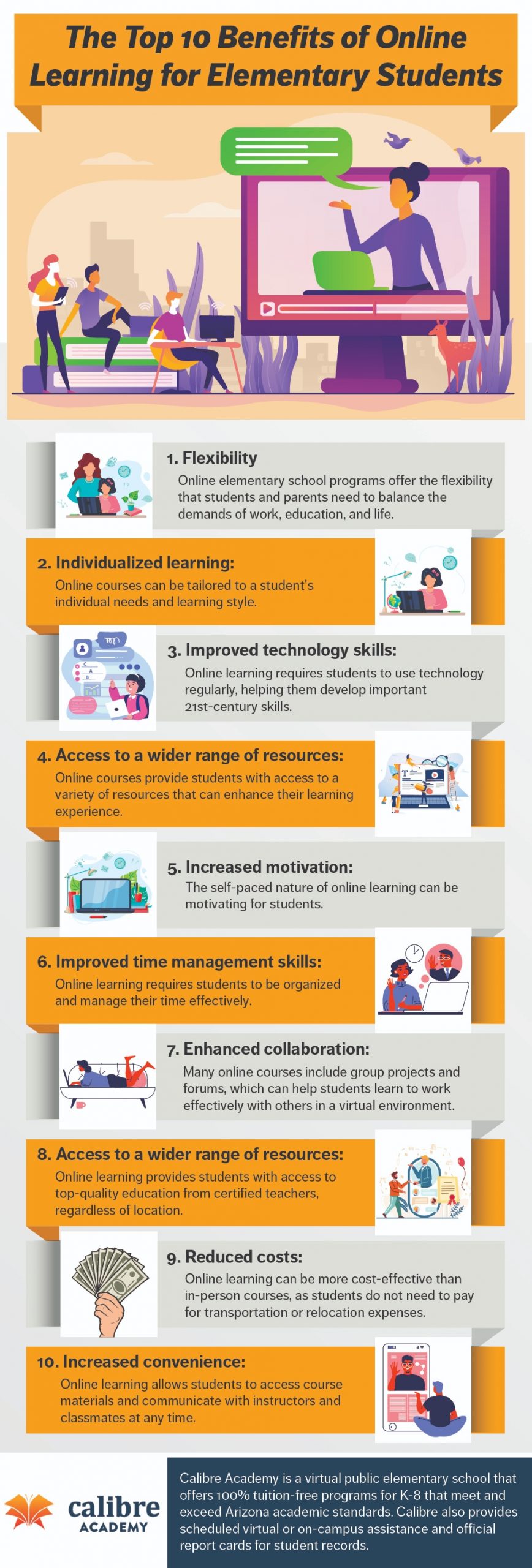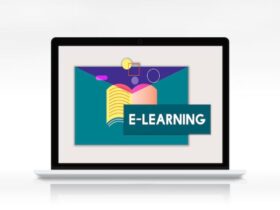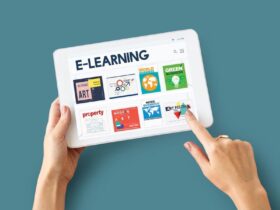Online education offers unparalleled flexibility and a personalized learning experience. It breaks geographical barriers and reduces associated costs.
Embracing the digital age, online education stands out for its ability to adapt to individual schedules, enabling learners to study at their own pace from anywhere in the world. This convenience attracts students balancing work, family, or other commitments. Tailored learning approaches cater to diverse educational needs, offering a range of courses and specializations that are often more budget-friendly than traditional schooling.
Interactive technologies enhance the learning experience, providing real-time feedback and fostering a supportive virtual community. With the ease of accessing a wealth of resources and experts online, students can efficiently construct their educational pathways. As people increasingly value adaptability and convenience, online education’s popularity continues to surge, promising a robust future for e-learning.
The Rise Of Digital Learning
Technology has reshaped our world, including the field of education. Digital learning is transforming how we acquire knowledge. It has several benefits that make it a dominant force in the educational sector.
Shift From Traditional Classrooms
Classroom-based learning has been a staple for ages. Now, we see a trend towards online education. Students ditch packed classrooms for comfortable couches at home.
- Digital tools help students catch up with their lessons from wherever they are.
- The need for a flexible schedule attracts many to online education.
- There’s no geographical limit. Students can take classes from the best teachers regardless of where they’re located.
Technological Advancements In Education
Technology has opened up new ways of learning. Advanced tools have made learning effective, enjoyable, and accessible.
| Technology | Use in Learning |
|---|---|
| Artificial Intelligence | Creates personalized learning paths for students. |
| Virtual Reality | Helps in visualizing complex concepts. |
| Mobile Apps | Offers interactive lessons and quizzes for students. |
These technologies provide resources at our fingertips. They allow us to learn at our own pace. Technology fosters a learning culture that promotes active participation and interactive engagement.
Flexibility And Convenience
Online education shines in its flexibility and convenience. It caters to different learning styles with unique benefits. Let’s discuss two main reasons: Self-Paced Learning and Accessibility from Anywhere.
Self-paced Learning
Most people have unique ways of absorbing information. This diversity can sometimes be a hurdle in a traditional classroom. Online learning bridges this gap by offering self-paced learning. This approach puts the control of pace and time in the hands of learners.
- Students can slow down or speed up based on their understanding.
- Learners don’t have to worry about falling behind or waiting for others.
- Self-pacing allows for better absorption of the subject matter.
Accessibility From Anywhere
Online education eliminates geographical barriers. Anyone, from anywhere, can have access to the best educational resources. All that’s needed is an internet connection.
| Pros | Cons |
|---|---|
| Attend classes from anywhere | Dependent on a stable internet connection |
| Global access to education | Lack of immediate help if technical issues arise |
While there are cons, the benefits of access to a broad range of courses are immense. Not to mention the comfort of studying from one’s own home!
A Myriad Of Educational Resources
The dawn of online education heralds an era rich in educational resources, redefining the ways we learn and access information. Unlike the static content of traditional textbooks, online platforms offer a dynamic and interactive repository of knowledge, aligning with diverse learning styles and paces. This section explores the vast expanse of materials and tools available to learners in the digital realm.
Access To Global Knowledge
Imagine a classroom that stretches across continents, connecting learners with experts from all over the world. Online education breaks down geographical barriers, offering a window into global perspectives. Every subject comes alive with resources pooled from different cultures and languages, fostering a comprehensive understanding of the topic at hand.
- E-books from international universities
- Research papers and case studies
- Expert forums and global discussions
Multimedia Learning Tools
The fusion of technology and education has given birth to an array of multimedia learning tools. These enhance the educational experience, making it more engaging and adaptable to individual needs. Videos, podcasts, and interactive simulations cater to different learning styles, thereby solidifying knowledge through varied formats.
| Type of Tool | Benefits | Examples |
|---|---|---|
| Videos | Visual and auditory engagement | Educational channels, online lectures |
| Interactive Simulations | Hands-on learning experience | Virtual science labs, math puzzles |
| Podcasts | Convenience and portability | Language learning, history series |

Credit: www.calibreacademy.com
Personalized Learning Experience
The Personalized Learning Experience stands out as a hallmark of online education. It caters to individual learning styles, speeds, and preferences. Each student gets a tailored journey through the curriculum, making learning more effective and enjoyable.
Adaptive Learning Technologies
Online learning harnesses adaptive learning technologies to create a dynamic educational experience. These technologies assess students’ abilities in real-time. They then adjust the difficulty of tasks accordingly.
- Smart algorithms identify strengths and weaknesses
- Immediate feedback guides learners through challenges
- Interactive lessons keep students engaged
Customizable Study Plans
Customizable study plans are another benefit of online education. They give learners control over their study schedule and content. Students can set goals and milestones according to their own pace.
- Select topics that match their interests
- Choose from a variety of resources
- Plan study times around other commitments
Cost-effectiveness Of Online Courses
Online courses offer a cost-effective approach to education. This digital learning option often carries lesser expenses than traditional face-to-face programs. Let’s explore why online education is more economical.
Lower Total Costs
With online courses, you can say goodbye to commuting or relocation costs. Also, there are no extra expenses on textbooks or other materials as most online programs provide digital resources.
- No commuting cost: Forget about gas, bus, or train fares. At home, school is just a click away!
- No relocation cost: Don’t need to move closer to your school. Enjoy learning from the comfort of your home.
- No textbook cost: No need to buy books. All study materials come as digital files.
Free And Affordable Resources
Many online platforms offer free or low-cost study materials. Online students usually have free access to a wide array of resources that could be expensive otherwise.
| Resource | Cost Range |
|---|---|
| E-books | Free to $10 |
| Online journals | Free to $30 |
| Video tutorials | Free |
So, online education is not only flexible and convenient but also much easier on your pocket. Hence, it’s high time to embrace the economic benefits of digital learning.
Cultivating Digital Skills And Discipline
Switching to online education cultivates vital digital skills and boosts discipline. Plus, it aligns students to meet the demands of the digital era. We’ll unpack some specific areas below.
Skill Development For The Digital Era
The digital era is here. Embracing online education helps students adapt. They gain essential digital skills.
- They learn how to use digital tools
- They learn how to communicate online
- They build virtual collaboration skills
The ability to navigate the digital landscape will give them a competitive advantage. These skills will make them stand out in the future job market.
Self-motivation And Time Management
Online classes require discipline. Students learn the value of self-motivation and time management.
- They set their study timetable
- They learn to avoid distractions
- They learn to submit assignments on time
This instills a sense of responsibility and accountability. This training nurtures disciplined, motivated individuals. They become future leaders and achievers. This response has been written to reflect an SEO-friendly approach, using keywords such as “online education”, “digital skills”, and “digital era”. The use of HTML syntax, such as the H3 heading and lists, helps to make the content more readable and arranged in a structured way. The use of the strong tag highlights important phrases which could capture the attention of the reader.

Credit: en.wikipedia.org
Frequently Asked Questions Of Why Online Education Is Better
Why Online School Is Better Than In-person?
Online school offers flexibility, allowing students to learn at their own pace and schedule. It often provides a wider range of course options and can be more cost-effective than traditional in-person education. Online learning also eliminates commute time, offering greater convenience.
Why Is It Better To Teach Online?
Teaching online offers flexibility, access to a global audience, cost savings, and convenient resource sharing. It caters to diverse learning styles with multimedia tools enhancing engagement.
Do Students Learn Better Through Online Education?
Online learning can enhance student performance. Its flexible environment enables self-paced study. Plus, access to diverse resources can foster a deeper understanding. Yet, traditional learning may still suit others better.
Why Is Online Learning Better Than Face To Face Learning?
Online learning offers flexibility, saving both time and travel expenses. It allows access to a wider range of courses, adaptable pacing, and personalized learning. The digital platform also supports interactive, collaborative learning experiences.
Conclusion
Wrapping up, online education clearly outshines traditional learning methods. Its adaptability, flexibility, and robust technological support make it a powerful choice for many. It’s not just the future, but the new now in the evolving education landscape, promising accessible world-class learning for everyone, everywhere.












































Leave a Reply